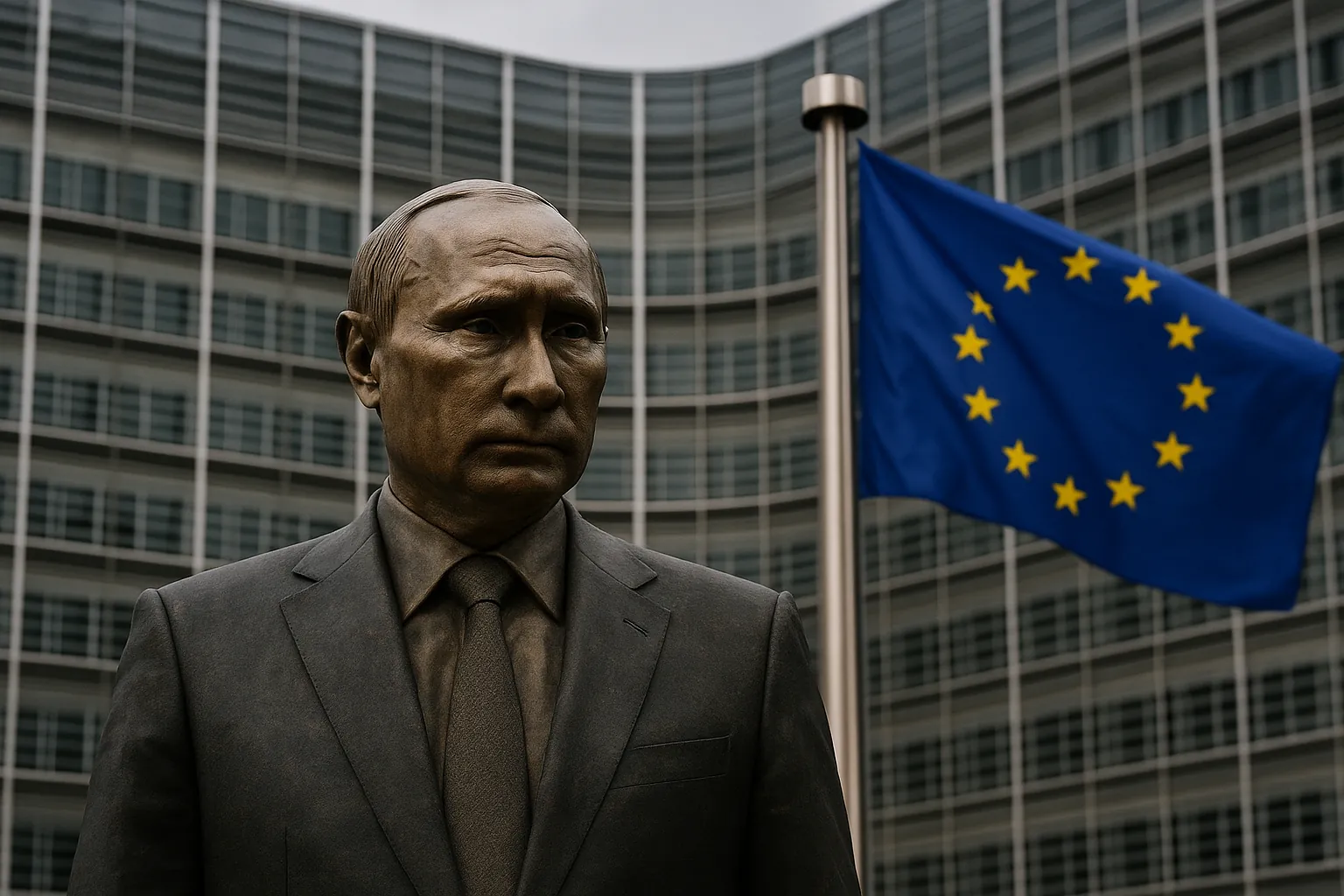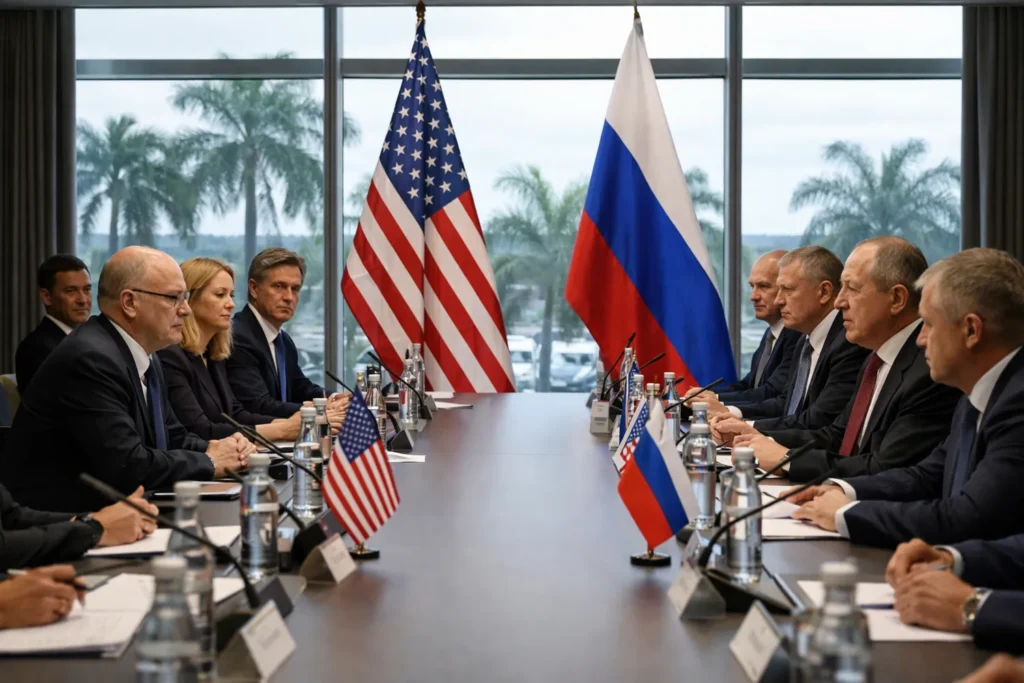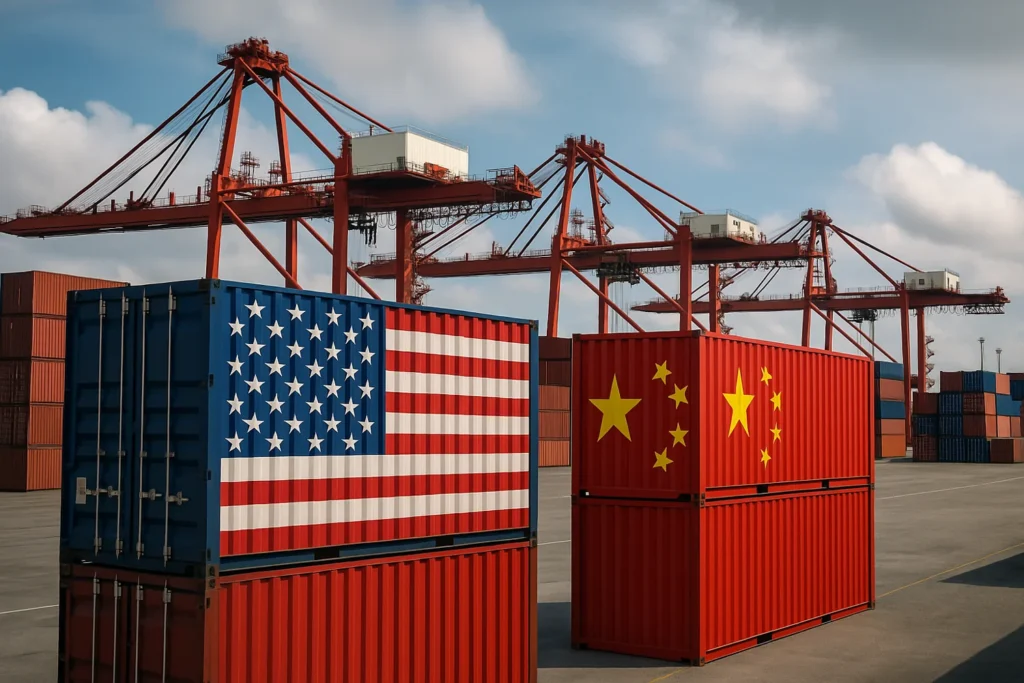The claim that the EU allows Putin visit — because sanctions target assets rather than personal entry bans — reads like a legalistic farce. The European Commission’s admission that asset freezes do not automatically bar Vladimir Putin from European soil reveals a dangerous gap. That gap is not a technicality. It is a political choice that weakens international justice, contradicts the International Criminal Court’s orders, and normalises the idea that powerful autocrats can roam while victims wait for accountability.
Context: the mainstream narrative and the legal scaffolding
Since Russia’s full-scale invasion of Ukraine, the EU has layered sanctions on Moscow. Those measures include asset freezes, transaction bans, trade restrictions and targeted measures against individuals and entities. The EU’s sanctions framework has evolved through successive packages, expanding to tangible assets and transaction rules.
Yet in recent days Brussels officials and spokespeople have clarified that existing measures do not include a formal travel ban on President Vladimir Putin. The Commission’s remarks confirm that the sanctions regime, as currently drafted, freezes assets and targets economic levers but stops short of an explicit entry prohibition for the Russian head of state.
At the same time, EU leaders are debating whether frozen Russian assets could be repurposed — for example, as backing for loans to Ukraine. German Chancellor Friedrich Merz publicly pushed to use frozen assets to finance Kyiv’s defence or reconstruction. That debate shows the EU’s practical priorities: monetising frozen wealth, while avoiding decisions that would fully isolate Russia’s leadership.
Oppositional Argument: why the mainstream is wrong — this is not mere legal nuance
Saying “sanctions target assets, not travel” is not a defensible legal distinction. It is an act of political theatre that enables impunity. The International Criminal Court’s arrest warrant for Putin is not a suggestion. It is a judicial instrument expected to be respected by states that claim to uphold rule of law. Treating travel as a detachable procedural detail effectively nullifies that instrument when it bothers high politics.
If the EU allows Putin visit, it sends three toxic messages simultaneously. First: rules apply flexibly to the powerful. Second: legal obligations that inconvenience diplomacy are negotiable. Third: international justice is subordinate to short-term realpolitik. Each message weakens deterrence and emboldens authoritarian leaders who calculate that raw power and geopolitical influence will buy them exemptions from legal consequences.
This is not a debate between lawyers. It is a debate about whether institutions will choose principle or convenience. The EU’s posture — asset freezes without entry bans — chooses convenience. That is the real story that mainstream coverage downplays.
Analytical Breakdown: causes, consequences, and the institutional rot
Why did we arrive here?
- Legal fragmentation and cautious drafting. EU sanctions are negotiated by consensus among member states. Legal teams often design measures narrowly to pass unanimous votes. That tightrope produces packages that maximise consensus but sacrifice completeness. The result is gesture politics: measures that look severe on paper but leave loopholes. The EU’s timeline of sanctions expansions shows incrementalism, not decisive closure.
- Member-state realpolitik and divisions. Not all member states treat Russia as the same threat. Economic ties, energy dependencies, and geopolitical hedging produce divergent priorities. Some capitals prefer keeping diplomatic channels open. Others advocate maximal isolation. The compromise tends to be half-measures that punish assets but allow political movement.
- Institutional risk-aversion. Brussels institutions fear triggering diplomatic ruptures or unintended legal fights. Faced with the diplomatic shock of a summit involving Putin, EU bureaucrats default to reading sanctions strictly. If the law does not explicitly bar entry, they claim they cannot act. That bureaucratic literalism masks a political choice.
Consequences are severe.
- Undermining international law. If European democracies treat an ICC arrest warrant as negotiable, they hollow out the ICC’s authority. The court depends on states for enforcement. Erosion at this moment will ripple into future cases, weakening legal leverage against war criminals everywhere.
- Strategic signalling to autocrats. Allowing movement for heads of state with serious charges signals that military aggression carries limited personal cost. That lowers the price of brutality.
- Moral injury to victims. The families of war victims in Ukraine see a legal limbo become political convenience. That gap inflicts a different moral wound: institutions that promised justice now appear performative.
Human Perspective: what this looks like on the ground
Picture the families in Bucha, Mariupol and other towns. They watched burnings, mass graves, and sieges. For them, responsibility is not an abstract doctrine. It’s daily life. When European capitals mutter about “assets, not travel,” those families read that as dismissal. They do not hear legal caveats. They hear power talk.
Similarly, frontline Ukrainian officers and diplomats risk their lives based on promises of allied resolve. When those promises yield to diplomatic theatre — meetings with a figure indicted for crimes — the battlefield calculus changes. That is not hypothetical. The EU’s public statements have consequences for morale, recruitment, and public support inside Ukraine.
Counterarguments and rebuttals
Opposing view: “Sanctions regimes are technical; travel bans on heads of state are complicated. Diplomacy sometimes requires contact to secure peace.”
Rebuttal: Technicality is camouflage for policy choice. Diplomacy can proceed through third parties, envoys, or neutral venues without normalising a visit. A summit that risks the appearance of normality is not necessary for negotiations. Moreover, the ICC’s warrant does not block all diplomacy; it creates legal obligations that require creative compliance, not sidelining.
Opposing view: “Using frozen assets for Ukraine is pragmatic and urgent.”
Rebuttal: Pragmatism does not excuse abdication of legal responsibility. Using frozen assets might help Ukraine. But repurposing those assets while simultaneously permitting the head of state to travel unimpeded creates a moral contradiction. If the EU wants to monetise frozen assets, it must simultaneously tighten enforcement mechanisms to prevent political cover for indicted leaders.
Insider signals and underreported threads
Inside Brussels, diplomats admit the arithmetic is grim. Several member states prefer technical fixes: temporary exemptions for specific flights, or “humanitarian” transit corridors. Such fixes are easy to draft into short-term exemptions. But internal leaks show a darker logic: exemptions are being designed with political optics in mind — whether the move would allow a high-profile summit to proceed. Those conversations, recorded in briefings and reported by EU-focused outlets, reveal an institutional willingness to prioritise headline diplomacy over enforcement.
At the same time, there is a push from finance-focused capitals to treat frozen assets as an economic lever. Chancellor Merz’s public call to use frozen Russian assets as collateral for loans to Ukraine illustrates a pivot: monetise now, litigate later. That approach privileges immediate funding needs over the structural integrity of sanctions and justice.
Finally, the Council of the EU’s own publications show the legal architecture that makes this possible. The sanctions framework focuses on asset freezes, trade restrictions and targeted measures. Travel bans have been used selectively, but they have not been universal, especially for heads of state in the peculiar diplomatic category. That legal layout enabled Brussels’ current statement that “assets are frozen but travel bans do not apply.”
What should be done — concrete fixes, not moral lectures
- Align policy with legal obligations. The EU must treat ICC warrants as binding obligations. If member states wish to host summits, they must seek legal pathways that respect arrest warrants, not loopholes that create impunity.
- Adopt explicit entry bans where warranted. If the legal framework is ambiguous, amend it. Sanctions packages should include clear travel prohibitions for indicted leaders. The Council’s rolling packages can and should be used for this.
- Create independent enforcement protocols. Member states must publish enforcement guidelines that make clear who is responsible for detention, transit inspections, and exemptions. Transparency reduces the political space for ad hoc deals.
- Decouple asset management from political normalisation. If frozen assets are used to help Ukraine, that process must be coordinated with accountability measures. Funds should be conditional on truth and reparations mechanisms, not political cover.
Conclusion: a judgment and a call to action
The EU allows Putin visit is not a neutral observation. It is a verdict on the moral choices of European institutions. When democracies tolerate loopholes for powerful autocrats, they erode the norms they claim to defend. Brussels’ current posture — freezing assets while allowing travel — is a shabby compromise that empowers the wrong side.
Europe must decide: defend rule of law or ritualise its erosion. The citizens who demand consistency are not asking for diplomatic grandstanding. They ask for coherence between law and policy. If the EU refuses, it will not only disappoint victims in Ukraine. It will teach future dictators how to game a rules-based order that was meant to contain precisely this behaviour.
107 views






